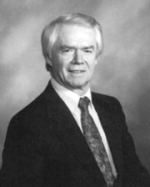|
|||||||
|
Visit The Center for Baptist Studies' Web Site at www.mercer.edu/baptiststudies |
|||||||
|
Produced by The Center for Baptist Studies, Mercer University Walter B. Shurden, Executive Editor, The Baptist Studies Bulletin Bruce T. Gourley, Editor, The Baptist Studies Bulletin Wil Platt, Associate Editor, The Baptist Studies Bulletin |
|||||||
|
I Believe . . . : Walter B. Shurden "Becoming a Revolutionary" The Baptist Soapbox: Edmon L. Rowell, Jr. "Matthew 28:19-20" History of the Baptist World Alliance: Richard V. Pierard "Blacks and the Baptist World Alliance" Baptists, the Bible, and the Poor: Charles E. Poole "Keeping the Church's Story Straight" We Ordain Women Because We Baptize Girls: Charles E. Poole A Sermon Focus on Collegiate Ministry: Ruth Perkins-Lee "Students: A Church's Best Resource for Collegiate Ministry"
BSB Book Review:
God's Politics: A New Vision for Faith
and Politics in America, Reviewed by E. Glenn Hinson News and Resources From the Net: by Bruce Gourley
Visit our website for regularly-updated "News and Views"
Note: To print the BSB, set your printer's left and right margins to .4 inches.
Note: You are free
to duplicate and circulate the articles in BSB or to use quotations |
|||||||
|
I Believe |
"Becoming a Revolutionary" By Walter B. Shurden
in the First Amendment to the Constitution of the United States. “Wow,” you say, “Now there’s a revolutionary statement!” If Brent Walker is even in the ballpark in his assessment that the First Amendment would not pass if put to the American public today, a belief in the First Amendment may be far more radical than you think. Even more alarming is a recent survey of high school students which revealed that only "half of the students said newspapers should be allowed to publish freely without government approval of stories." Ratified 15 December 1791, the First Amendment goes like this: “Congress shall make no law respecting an establishment of religion, or prohibiting the free exercise thereof; or abridging the freedom of speech, or of the press: or the right of the people peaceably to assemble, and to petition the Government for a redress of grievances.” I am 68 years old. I have been in the ministry since I was 18 years old. The math is easy: 18 from 68 is 50. For a half century now, I have been roaming the Baptist yard, observing Baptist practices, loving and being loved by Baptist people, and celebrating the principles for which they have stood. When I entered the Baptist ministry in 1955 and for at least 30 years afterward, if you preached a sermon in a Baptist church on the separation of church and state and religious liberty, you would have them snoring in their pews in a matter of minutes. The Benediction was wake-up time. But not today! Today you preach a sermon on religious liberty and separation of church and state, freedom of conscience and freedom of the press, and you will begin to feel sanctuary electricity. Something serious and radical regarding First Amendment issues has distorted the Baptist vision in the last twenty to twenty five years. Among other things, we Baptists have distinguished ourselves by neglect of our own heritage. Our understanding of Baptist history goes way back to the last resolution adopted at the last meeting of our particular denominational convention. We are a historically illiterate people. We are an unanchored people because we are an unhistorical people. We now have Baptists who get elected to public office by minimizing the separation of church and state and maximizing the claim that this is a Christian nation. When they want to demonstrate their commitment to a belief in pluralism they refer to this republic only as a Judeo-Christian nation, forgetting all other devout religionists and those with no religion at all. Someone asked Helen Keller if anything was worse than losing one’s sight. “Yes,” she said, “losing one’s vision.” Have Baptists lost our vision? Have we lost our vision of freedom of conscience for all, freedom of religion for all, and freedom of speech for all? Have we lost our vision of the First Amendment that we Baptists helped to get adopted? Have we lost our vision that the Body of Christ should not be feeding itself at Caesar’s troughs? I am grateful to God that The Associated Baptist Press, Baptists Today, and The Baptist Joint Committee have kept the vision. I am grateful to God that they call us to renew our vision. I am glad to join them. I urge you to join them in the First Freedoms Project. Read at http://www.baptiststoday.org/ffp/about.htm and find out all about the First Freedoms Project. Cornelius Plantinga, Jr. haunts me with his words: “One way to evade responsibility is to play dead, to do absolutely nothing and to do it repeatedly.” (See Not the Way It’s Supposed To Be: A Breviary of Sin, 187) Baptists did not play dead in 1791 regarding the First Amendment. Let us renew our vision. Let us commit ourselves today to the First Amendment of the Constitution of the United States of America. |
||||||
|
|||||||
|
The Baptist Soapbox: Invited guests speak up and out on things Baptist (therefore, the views expressed in this space are not necessarily those of The Baptist Studies Bulletin, though sometimes they are). Climbing upon the Soapbox this month is Edmon L. Rowell, Jr., Senior Editor, Mercer University Press. A farm boy from Alabama, he is an unapologetic Baptist preacher, a readable author, an editor without peer, a husband to one he calls "Dear Ruth," a father and grandfather, a faithful church member, a cancer survivor, and a great friend.
"Matthew 28:19-20"By Edmon L. Rowell, Jr.
I was bred in LA (Lower Alabama). I grew up in three different churches. Granny's church was Zion Rock Primitive Baptist Church. Daddy's church was Shady Hill Freewill Baptist Church. Mother belonged to Beda Missionary Baptist Church. So, as a family we went to Zion Rock once a month, to Shady Hill once a month, and to Beda twice a month. (Fifth Sundays were "preacher Sundays.") At Zion Rock I learned to sing Sacred Harp a cappella, and how to stay reasonably conscious during some very long sermons. At Shady Hill I learned to sing Stamps-Baxter, and a lot about the Bible. At Beda I learned most of the Broadman hymns, and also about Lottie Moon and Annie Armstrong and a host of other missionaries. During World War II we lived in Mobile. We joined Plateau Baptist Church where Mother became church pianist, Daddy became a deacon, and my "missionary" Baptist leanings were confirmed. Every year around hog-killing time we'd save our pennies in a little pasteboard "bank." At Christmastime we'd bring our little banks to the churchhouse for Lottie. Around Washington's birthday we'd begin saving for Annie. At Eastertime we'd bring in Annie's offering. Pennies and nickels and dimes were in short supply (dollars were scarce as hen's teeth), but Lottie and Annie always got a goodly share of what we had. In addition to supporting our missionaries, we were constantly encouraged to be on our own "mission." (Our church motto at Livingston First Baptist Church in 1975ff. was "into all the world, beginning here.") Every Sunday we would mark our eight-point record with the "contacts" we had made during the past week. There was always a summer revival (in LA, after the crops were laid by). And at least twice a year we would have a special study course in "witnessing" (Acts 1:8 of course). These days I don't hear much about Lottie and Annie or even Matthew 28:19-20 or Acts 1:8. Oh, we still nod their way now and then. (A moderate apologist might say it's because Lottie and Annie and even Matthew 28:19-20 have been hijacked by the present SBC powers-that-be.) And at every Christmastime and Eastertime we bring our "over-and-above" missionary offering to the churchhouse. But I still get homesick for a strong emphasis in virtually every program of the church on missions—"into all the world, beginning here." I'm not nostalgic. I wasn't born 100 years too late—50 maybe. I'm a realist. (A pessimist sees a glass half-empty; an optimist sees a glass half-full; a realist sees a glass.) I believe unless we regain a concerted emphasis on reaching out and "bringing them in" (Matthew 28:19-20 and Acts 1:8), we are digging ourselves an early grave, and soon won't have any home to go to.
|
|||||||
| BWA |
History of the Baptist World Alliance: The Baptist World Alliance is celebrating its 100th anniversary this year. Richard V. Pierard is Stephen Phillips Professor of History, Gordon College, Wenham, Massachusetts and Professor of History, Emeritus, Indiana State University. The author of numerous books and articles, Dick is the general editor of the upcoming Baptists Together! 1905-2005: Centennial History of the Baptist World Alliance. Learned and well traveled, he is an ecumenical Christian with firm Baptist convictions.
"Blacks and the Baptist World Alliance"By Richard V. Pierard
A prominent feature of the Baptist World Alliance was the presence of blacks—first African Americans and then indigenous Africans as well. The British organizers of the first Baptist World Congress in 1905 insured that blacks were welcome, and J. H. Shakespeare declared in his report that about fifty “negro brethren” were present and they “were cheered and seen everywhere.” The National Baptist Convention, Lott Carey Baptist Mission Convention, and Jamaica Baptist Union were officially represented at the Congress, and blacks Nannie Helen Burroughs, C. H. Parrish, L. G. Jordan, E. C. Morris, and C. S. Brown were among the speakers. NBC President Morris served on the American organizing committee, the committee that framed the BWA constitution, and the new BWA Executive Committee. The National Baptist Convention (and eventually other black denominations as well) were represented on BWA administrative bodies and committees, and African Americans were visible at every subsequent Baptist World Congress. At Philadelphia in 1911, Morris gave a plenary lecture about ministry among American blacks and the NBC Foreign Mission Board’s effort to spread the gospel in Africa and the West Indies. Burroughs talked about the new training school for women and girls she had founded that the black community itself funded, and the country’s best-known black leader, Booker T. Washington, reviewed the progress his people had made since the end of slavery. In Stockholm (1923), the official Congress report noted the “Afro-Americans” had an entire session in which they “took charge and showed to other races how their genius expresses itself in religion.” The current NBC president, Lacey Kirk Williams, gave the main address, “Some Contributions Negroes have made to the Progress of the World.” Then a prominent figure in the BWA, he was a Vice-President when he died in 1943. At Toronto in 1928, John Hope, the distinguished black scholar from Atlanta, spoke about “The Contribution of Coloured People to the Education of Their Race." At the 1934 Berlin Congress, the German press noted the racially integrated audience. Openly defying Nazi ideology, the commission on “Racialism” strongly condemned the color bar and anti-Semitism as well. Many in the BWA had serious reservations about holding the 1939 Congress in Atlanta, and President G. W. Truett and local pastor Louie Newton had to see to it that segregation laws were not enforced, seating was integrated, and African Americans were involved in the planning and on the program. In the post-war years, the BWA supported the U.S. civil rights movement with strong resolutions, and Martin Luther King, Jr. attended both the 1960 and 1965 Congresses. Slated to be the featured speaker at the 1963 World Youth Congress, he had to remain home because of the March on Washington, but he did address the European Baptist Federation in 1964. By this time Africans played a role in the BWA. In 1955 A. J. Ayorinde of Nigeria was the first African to be elected a Vice-President, and this became a regular practice. In 1965-70, William R. Tolbert, Jr., Baptist pastor and president of Liberia, served as the first African President. In 1988 Wendy Ryan of Trinidad and Tobago was named BWA Director of Communications, and in 1994 Emmett F. Dunn from Liberia was appointed Director of the Youth Department, thus completing the integration of the BWA staff.
In 1992 the BWA formed a Special Commission of Baptists Against
Racism. It examined the biblical and theological issues of racism and adopted
the hard-hitting Harare Declaration promoting reconciliation. This was
followed by a U.S. summit against racism in 1995 and an even more significant
International Summit of Baptists Against Racism and Ethnic Conflict in Atlanta
in 1999, where Baptists pledged themselves to foster racial justice and to
eradicate racism wherever it emerges. The present chair of the crucial 21st
Century Committee planning the BWA’s future is David Emmanuel Goatley of the
Lott Carey Baptist Foreign Mission Convention. Thus, over its 100-year
existence, the BWA has consistently fostered racial harmony and included
African Americans and Africans in its endeavors. |
||||||
|
|||||||
|
Baptists, the Bible, and the Poor: Charles E. Poole is a Baptist minister with Lifeshare Community Ministries in Jackson, Mississippi where he delights in ministering alongside the poor. "Chuck" Poole, a provocative preacher and servant pastor, served Baptist churches for twenty-five years. Among the churches he has served are First Baptist Church, Macon, GA, First Baptist Church, Washington, DC, and Northminster Baptist Church, Jackson, MS.
"Keeping the Church's Story Straight"By Charles E. Poole
|
|||||||
|
“WE ORDAIN WOMEN BECAUSE WE BAPTIZE GIRLS”
|
|||||||
|
Focus on Collegiate
Ministry: As the moderate Baptist movement
continues to grow and expand, emphasis on collegiate ministry is slowly taking
shape at a time when traditional Baptist Student Union/Baptist Campus
Ministry models are facing unprecedented challenges. This series, featuring
writers who know Baptist collegiate ministry, focuses on the future of
moderate Baptist collegiate ministry. This month's contributor is Ruth
Perkins-Lee, Minister of Students at First Baptist Church, Auburn, Alabama.
Lee's position is partially funded by a three-year grant from Cooperative
Baptist Fellowship. "Students: A Church's Best Resource for Collegiate Ministry" By Ruth Perkins-Lee
Listen to the students. Learn their names, their majors, their family’s names. Listen to their chitchat about school–when are their tests? What classes give them grief? Then respond to them. Ask them about their lives. How was that test last week? Did you get any sleep with that project due Monday? Call, email, text message, or instant message them the morning of a big day to let them know you are praying for them. Help them connect with each other. “How’s chemistry, Melanie? You know that Lane had that same prof last semester.” We often end up with impromptu study sessions in our den after Bible study. One of the biggest challenges of collegiate ministry today is the lack of commitment to one group. It is not uncommon for students to attend two or three different Bible studies a week in as many religious organizations. Veteran collegiate ministers in Auburn scratch their heads as to how to get a handle on it. In conversations with ten other college ministers in Auburn, we concluded that we do not know what to do. However, none of us feel the need to restructure our ministries so that we all become uniform. Find your church’s strengths and use them. One strength of church-based college ministry is the integration of generations. By offering opportunities for the generations to interact, college students begin to see themselves as a part of a larger community in which they have a purpose. For example, have your college ministry sponsor a breakfast during Sunday school for the senior adults. Enlist your college students to serve in the preschool area for childcare during worship occasionally. If you have people in your church who love to cook, enlist them for a regularly scheduled college meal. The more people outside the college ministry who know the students’ names, the more the students will feel connected and a part of the congregation. Discern what your
congregation can do well. Then do it well. We have to do collegiate ministry
well. College students will serve as our church leaders tomorrow. True, they
may not stay in your church, but they will lead in someone’s church.
Hopefully, another church is training your leaders for tomorrow. |
|||||||
| Book Review |
BSB Book Review: BSB presents a review of God's Politics: A New Vision for Faith and Politics in America, by Jim Wallis. E. Glenn Hinson,
Professor Emeritus of Baptist
Theological Seminary in Richmond, Senior Professor of Church History and
Spirituality at Baptist Seminary of Kentucky, Visiting Professor of Church
History at Lexington Theological Seminary, and Adjunct Professor of Church
History at Louisville Presbyterian Seminary, reviews
God's Politics: A New Vision for Faith and
Politics in America. In God’s Politics Jim Wallis sounds an urgent call for prophetic religion and spiritual revival which can ignite a deep social conscience which will transform American society. As founder and editor of Sojourners, one of the major evangelical voices in America, he plots a path between the religious Right and the secular Left. What is needed today, he insists, is a vision. Where will it come from? From what the Old Testament prophets, Jesus, and New Testament writers had to say “about our public commitments, our common life, and the sacred bonds we share in community.” To Christians who hold back from social responsibility he has a strong word, “God is personal but never private. And the Bible reveals a very public God.” What is especially valuable about God’s Politics is that Wallis, very much a social activist, goes beyond complaint, which he considers quite legitimate, to offer alternatives. “Protest is good,” he says,”but alternatives are better.” He said no, for instance, to the preemptive invasion of Iraq, but he and other religious leaders offered a nonviolent “third way” which would have removed Hussein and his Baath Party, pursued coercive disarmament, fostered a democratic Iraq, and organized a massive humanitarian effort for the people of Iraq. Wallis negates, too, the Bush theology of Empire, Pax Americana. He does not question the sincerity of the President’s faith, but he concludes that it is wrong-headed and dangerous in its aim “to rid the world of evil.” What we need in this time of crisis is a new Barmen Declaration, in which we place Christ above national identity, commit ourselves to “a strong presumption against war,” recognize our own faults, love our enemies, and humble ourselves before God. A pacifist, Wallis believes we can win without war. As Micah proclaimed in the 8th century B.C.E., we will not have security until others feel secure. America’s fears and her wars “have pushed the poor off the agenda.” Addressing the massive problem of poverty both nationally and internationally will require the spiritual energy and the moral authority of religious communities. Republicans look after the rich, Democrats after the middle class; neither takes care of the poor. Energy for that comes from faith-based groups. Wallis has supported President Bush’s faith-based initiatives. Such groups must not only provide social services; they must also shape public policy to secure social justice. Massive increases in military spending and tax cuts for the wealthy are “morally unacceptable.” Drawing from Isaiah, Wallis declares, “Budgets are moral documents.” “The great crisis of American democracy today is the division of wealth.” The behavior of Enron and other American corporations is “a direct violation of biblical ethics.” Internationally it is time for Jubilee, cancellation of the indebtedness of the poor nations, for adoption of fair trade practices, for a new Marshall Plan, and for addressing the AIDS/HIV crisis. In the more personal realm Wallis calls for “a consistent ethic of life,” opposing capital punishment as well as abortion; truth telling about racism, “America’s original sin;” and support of family and community values without denial of rights to gays and lesbians. All the way through, this book is against cynicism and despair and it closes on a trumpet blast of the reasons we have to be hopeful. Just like the teaching of Jesus and the prophets, it sounds a hard and yet hopeful word we cannot afford not to hear. I found myself yes . . . yesing all the way through God’s Politics. It’s a “must” for ministers! |
||||||
| Resources |
News and Resources from the Net
Concepts of Freedom Among America's Youth – According to a recent survey of American high school students, there is little commitment to First Amendment freedoms among America's youth. This study is yet another indication that freedom in America is endangered.
The Journal of College and Character focuses on "moral and civic learning in higher education." This internet journal is published by the Center for the Study of Values in College Student Development at Florida State University. This is an excellent publication which will be of interest to scholars, administrators, ministers, and parents of college students.
|
||||||
|
|||||||
|
Note |
Dates to Note
June 2-4,
Baptist History and Heritage Society
Annual Meeting.
Samford University, Birmingham, Alabama. Theme: "Women in Baptist
History."
June 22-25, 2005
June 30 - July 1, CBF National General Assembly. Gaylord Texan Resort and Convention Center, Grapevine, TX.
July
12-15, 2005, International Conference on Baptist Studies IV, Acadia
University, Wolfville, Nova Scotia, Canada.
The Fourth International
Conference on Baptist Studies will help to mark the centennial celebrations of
the Convention of Atlantic Baptist Churches. The theme is "Baptists and
Mission," which includes home and foreign missions, evangelism, and social
concern. For
more information, contact Professor D.
W. Bebbington, Department of History, University of Stirling, Stirling FK9
4TB, Scotland, United Kingdom (e-mail:
d.w.bebbington@stir.ac.uk).
For a full calendar of Baptist events, visit the
Online Baptist Community Calendar. |
||||||
|
|
BAPTIST MYTHS and the Death of Pope John Paul II The two pamphlets noted above are from a series of eleven pamphlets that address negative perceptions held towards Baptists in popular American culture. The "Anti-Ecumenical" and "Anti-Catholic" myths are particularly timely in light of the recent death of Pope John Paul II.
Individual pamphlets and the larger pamphlet series are suitable for individual study, church classes, and academic courses. They are jointly published by the Baptist History and Heritage Society, The Center for Baptist Studies of Mercer University, and the Whitsitt Baptist Heritage Society. Editor: Doug Weaver; Associate Editors: Charles W. Deweese & Walter B. Shurden. |
||||||
|
|
|
||||||
|
|
If you do not wish to receive BSB any longer, please Click Here to unsubscribe. |
||||||

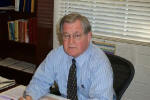 I believe . . .
I believe . . .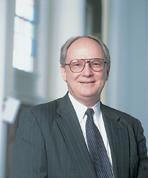
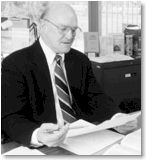 I'm Baptist by accident of
birth. I'm a Matthew 28:19-20 Baptist by choice.
I'm Baptist by accident of
birth. I'm a Matthew 28:19-20 Baptist by choice.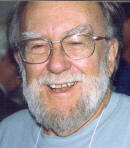
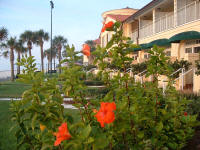

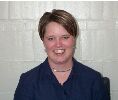 We in
churches often ask, “what’s the best way to do college ministry? What should
we plan? What should we teach?” In answering these questions, we often fail
to ask our college students. The college students in our churches serve as
our best resource. An honest assessment of what works and what does not
provides the starting place for building a college ministry. The best-laid
plans in college ministry often fail because we did not involve the students
in the planning stages. The more students like an idea and have ownership of
it, the more likely the idea will succeed.
We in
churches often ask, “what’s the best way to do college ministry? What should
we plan? What should we teach?” In answering these questions, we often fail
to ask our college students. The college students in our churches serve as
our best resource. An honest assessment of what works and what does not
provides the starting place for building a college ministry. The best-laid
plans in college ministry often fail because we did not involve the students
in the planning stages. The more students like an idea and have ownership of
it, the more likely the idea will succeed. 